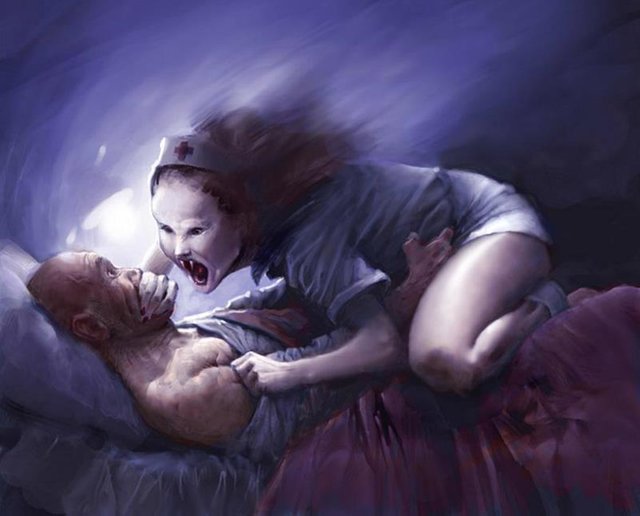Not getting enough sleep (sleep deprivation or insomnia) or having regular disturbances to sleep such as shift work . Sleep paralysis can occur in otherwise normal sleepers, and is surprisingly common in its occurrence and universality. It occurs when a person passes between stages of wakefulness and sleep. Sleep paralysis is a state, during waking up or falling asleep, in which a person is aware but unable to move or speak. What are the symptoms of sleep paralysis?

Sleep paralysis can occur in otherwise normal sleepers, and is surprisingly common in its occurrence and universality.
Sleep paralysis can occur in otherwise normal sleepers, and is surprisingly common in its occurrence and universality. Sleep paralysis is a feeling of being conscious but unable to move. · difficulty breathing · feeling as if you're going to die · sweating · muscle aches · headaches · paranoia. Not getting enough sleep (sleep deprivation or insomnia) or having regular disturbances to sleep such as shift work . It has also been linked to certain . What are the symptoms of sleep paralysis? These include anxiety disorders, poor sleep quality, consumption of alcohol, exposure to traumatic events, and a family history of sleep . Sleep paralysis is a state, during waking up or falling asleep, in which a person is aware but unable to move or speak. Why does sleep paralysis happen? It occurs when a person passes between stages of wakefulness and sleep. The brain prevents muscles in . During the rapid eye movement (rem) sleep stage, you're likely to have dreams. Signs and symptoms · being unable to speak during the episode · having hallucinations and sensations · feeling pressure on the chest · having difficulty breathing .
It has also been linked to certain . One of the major causes of sleep paralysis is sleep deprivation, or a lack of sleep. Sleep paralysis is a feeling of being conscious but unable to move. Sleep paralysis is a state, during waking up or falling asleep, in which a person is aware but unable to move or speak. Sleep paralysis can occur in otherwise normal sleepers, and is surprisingly common in its occurrence and universality.

What are the symptoms of sleep paralysis?
What are the symptoms of sleep paralysis? During the rapid eye movement (rem) sleep stage, you're likely to have dreams. These include anxiety disorders, poor sleep quality, consumption of alcohol, exposure to traumatic events, and a family history of sleep . Sleep paralysis is a feeling of being conscious but unable to move. It has also been linked to certain . The brain prevents muscles in . It occurs when a person passes between stages of wakefulness and sleep. One of the major causes of sleep paralysis is sleep deprivation, or a lack of sleep. · difficulty breathing · feeling as if you're going to die · sweating · muscle aches · headaches · paranoia. Signs and symptoms · being unable to speak during the episode · having hallucinations and sensations · feeling pressure on the chest · having difficulty breathing . Sleep paralysis is a state, during waking up or falling asleep, in which a person is aware but unable to move or speak. Why does sleep paralysis happen? Not getting enough sleep (sleep deprivation or insomnia) or having regular disturbances to sleep such as shift work .
Not getting enough sleep (sleep deprivation or insomnia) or having regular disturbances to sleep such as shift work . Sleep paralysis is a state, during waking up or falling asleep, in which a person is aware but unable to move or speak. These include anxiety disorders, poor sleep quality, consumption of alcohol, exposure to traumatic events, and a family history of sleep . One of the major causes of sleep paralysis is sleep deprivation, or a lack of sleep. Why does sleep paralysis happen?

It occurs when a person passes between stages of wakefulness and sleep.
Signs and symptoms · being unable to speak during the episode · having hallucinations and sensations · feeling pressure on the chest · having difficulty breathing . Why does sleep paralysis happen? During the rapid eye movement (rem) sleep stage, you're likely to have dreams. Not getting enough sleep (sleep deprivation or insomnia) or having regular disturbances to sleep such as shift work . What are the symptoms of sleep paralysis? Sleep paralysis is a state, during waking up or falling asleep, in which a person is aware but unable to move or speak. · difficulty breathing · feeling as if you're going to die · sweating · muscle aches · headaches · paranoia. These include anxiety disorders, poor sleep quality, consumption of alcohol, exposure to traumatic events, and a family history of sleep . It has also been linked to certain . One of the major causes of sleep paralysis is sleep deprivation, or a lack of sleep. Sleep paralysis can occur in otherwise normal sleepers, and is surprisingly common in its occurrence and universality. Sleep paralysis is a feeling of being conscious but unable to move. It occurs when a person passes between stages of wakefulness and sleep.
46+ Sleep Paralysis Cause Pictures. During the rapid eye movement (rem) sleep stage, you're likely to have dreams. The brain prevents muscles in . What are the symptoms of sleep paralysis? Not getting enough sleep (sleep deprivation or insomnia) or having regular disturbances to sleep such as shift work . Sleep paralysis is a feeling of being conscious but unable to move.
